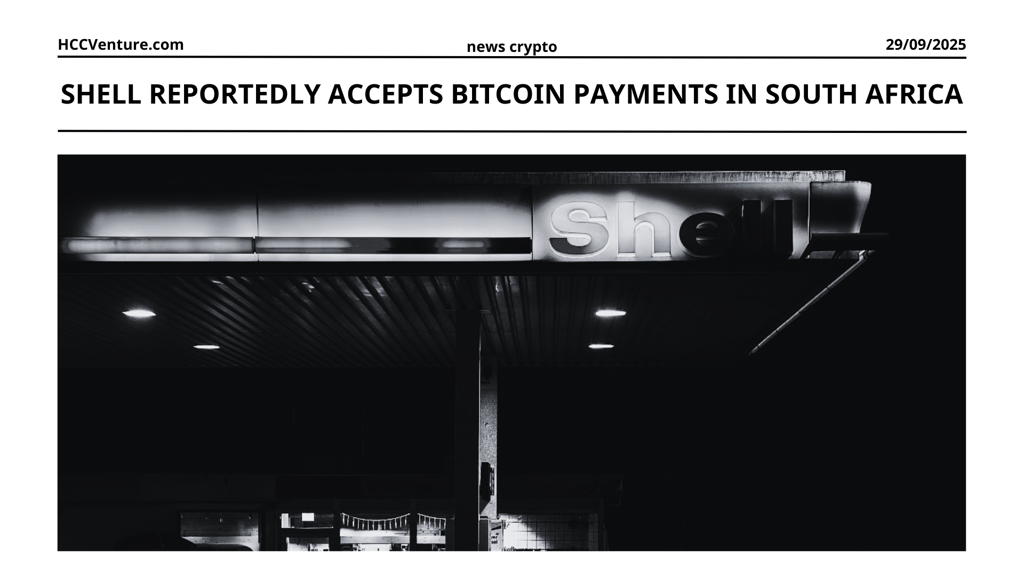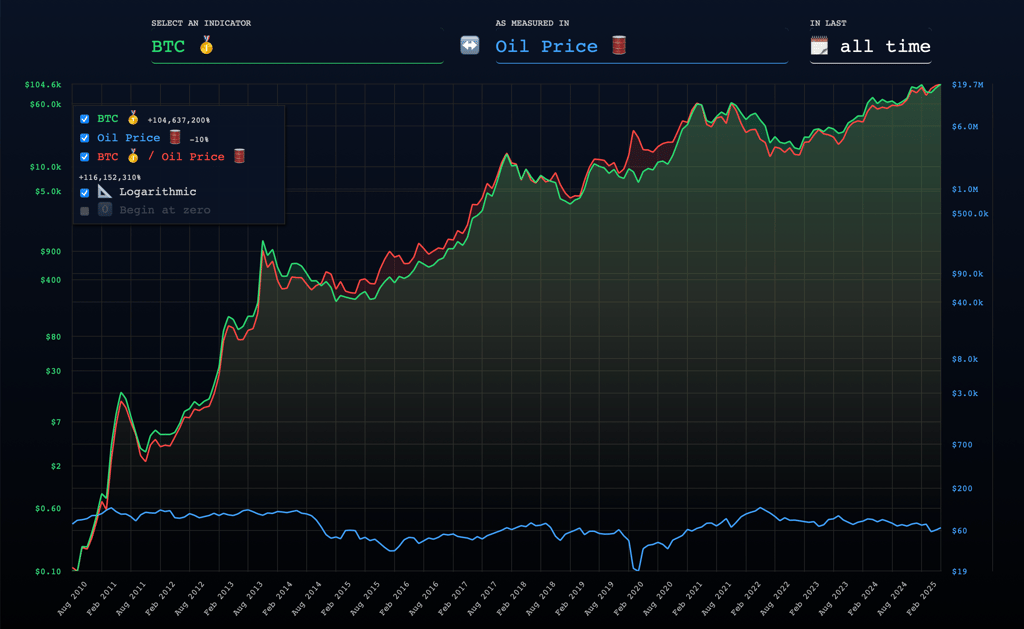Oil company Shell accepts Bitcoin payments in South Africa
According to recent reports, global oil and gas giant Shell has accepted Bitcoin (BTC) payments for fuel and related services in South Africa.
9/29/20253 min read


Using Bitcoin to pay for oil and gas
In a groundbreaking move that combines fossil fuels and digital gold, Shell South Africa has started accepting Bitcoin (BTC) for fuel purchases at select gas stations, marking the energy giant’s first foray into cryptocurrency payments on the continent. Launched as a pilot program in mid-September, the initiative allows drivers to pay in BTC through integrated point-of-sale systems, converting to rand (ZAR) in real time to protect retailers from volatility.
Against the backdrop of Bitcoin's price rally to $115,500 and a 1,200% surge in cryptocurrency adoption in Africa since 2020, the move – first reported by local media – positions Shell as a pioneer in connecting TradFi rails to blockchain, potentially unlocking $50 billion in tokenized energy transactions by 2030. For a $150 billion oil giant grappling with ESG pressures and the transition to electric vehicles, it's a pragmatic move toward emerging markets, where 12% of adults hold cryptocurrency, according to Chainalysis.
With the South African rand down 8% since the start of the year, BTC’s borderless appeal could speed up remittances and reach the unbanked, but skeptics are eyeing scalability hurdles in a sector that remains 90% reliant on fiat. The pilot project, limited to the forecourts of Johannesburg and Cape Town, processes payments through partnerships with local exchanges like Luno, underscoring the cautious acceleration amid loosening regulations.


Big impact on the oil and gas industry?
Shell’s BTC implementation takes advantage of QR code scanning at gas stations, routing transactions over the Lightning Network to settle payments in under 10 seconds—much faster than swiping a card. The user taps a crypto wallet app (e.g., Satoshi Wallet or Muun), approves the fiat equivalent, and voila: Fuel is dispensed, BTC is deducted at the spot rate minus a 1-2% conversion fee. Shell’s provider, likely Valorant or a similar gateway, handles custody and KYC, ensuring compliance with South Africa’s Financial Intelligence Centre Act.
This isn’t mass adoption: It’s a six-month trial at 20 gas stations that could be expanded if usage reaches 5% of transactions. Shell SA CEO Khumo Theko described it as “meeting customers where they are,” citing South Africa’s 2.5 million crypto users. The early data? According to unverified Luno logs, there’s been a spike in young urban drivers (ages 18-35), with more than 300 BTC transactions in the first week. Globally, this is similar to ExxonMobil’s 2024 NFT carbon credit, but converted to payments—a low barrier to entry in an $80/barrel oil market.
Pioneer in innovation
Shell is one of the world’s largest integrated oil and gas companies, operating across multiple sectors, from energy production, refining to fuel retailing across multiple continents. Shell’s decision to test or roll out Bitcoin payments in South Africa demonstrates its strategic alignment with the region’s needs:
South Africa has a vibrant cryptocurrency economy, ranking among the top African countries for Bitcoin adoption.
Consumers and local businesses are increasingly using Bitcoin to transfer money, make payments and hedge against currency fluctuations.
By allowing payments in BTC, Shell may be looking to differentiate its retail offerings, attract tech-savvy young customers, and experiment with new digital payment models in emerging markets.
The move also fits into a broader global trend where corporations are experimenting with cryptocurrency payments as an alternative to card networks, especially in markets where banking infrastructure is fragmented or costly.
Evaluation and Conclusion
If Shell’s announced Bitcoin payments initiative is successful in South Africa, it could serve as a testing ground for wider adoption across Africa and potentially other emerging markets. In the long term, Shell could integrate cryptocurrency payments with renewable energy services, electric vehicle charging networks or loyalty programs, bringing Bitcoin deeper into the everyday consumer energy economy.
For Bitcoin, this marks another step towards mainstream payment legitimacy, bringing it closer to its original vision of being both a store of value and a medium of exchange.
Disclaimer: The information presented in this article is the author's personal opinion in the cryptocurrency field. It is not intended to be financial or investment advice. Any investment decision should be based on careful consideration of your personal portfolio and risk tolerance. The views expressed in this article do not represent the official position of the platform. We recommend that readers conduct their own research and consult with a professional before making any investment decisions.
Explore HCCVenture group
HCCVenture © 2023. All rights reserved.

Connect with us
Popular content
Contact to us
E-mail : sp_contact@hccventure.com
Register : https://linktr.ee/holdcoincventure
Disclaimer: The information on this website is for informational purposes only and should not be considered investment advice. We are not responsible for any risks or losses arising from investment decisions based on the content here.


TERMS AND CONDITIONS • CUSTOMER PROTECTION POLICY
ANALYTICAL AND NEWS CONTENT IS COMPILED AND PROVIDED BY EXPERTS IN THE FIELD OF DIGITAL FINANCE AND BLOCKCHAIN BELONGING TO HCCVENTURE ORGANIZATION, INCLUDING OWNERSHIP OF THE CONTENT.
RESPONSIBLE FOR MANAGING ALL CONTENT AND ANALYSIS: HCCVENTURE FOUNDER - TRUONG MINH HUY
Read warnings about scams and phishing emails — REPORT A PROBLEM WITH OUR SITE.
